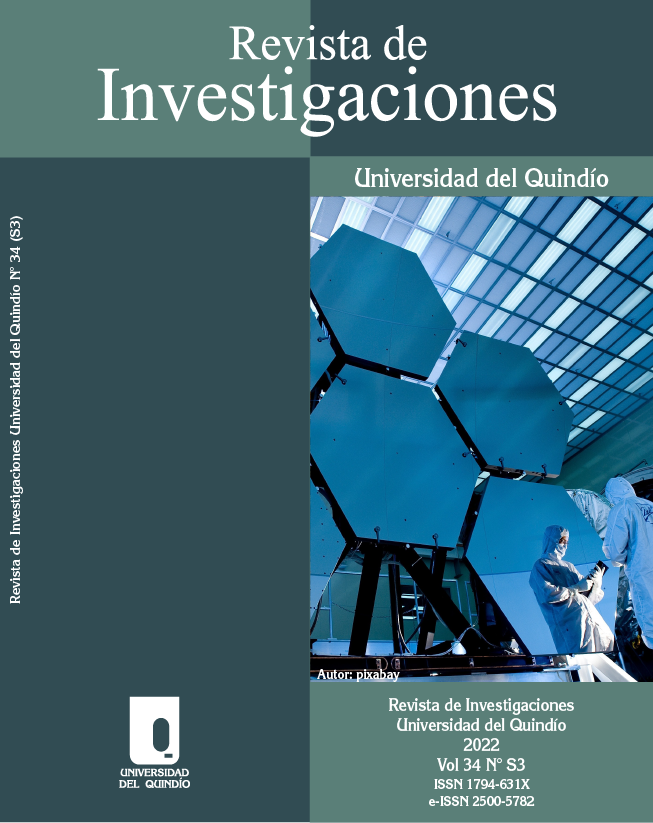La formación de la tasa de éxito como base para el crecimiento de la personalidad de los estudiantes en las circunstancias contemporáneas
DOI:
https://doi.org/10.33975/riuq.vol34nS3.993Palabras clave:
Tasa de éxito, Posición de vida activa, Desarrollo armónico, Autoevaluación, Apatía socialResumen
El presente estudio se enfoca en la búsqueda de procedimientos para la formación de índices de éxito como base para el crecimiento armonioso de la personalidad de los estudiantes en las circunstancias contemporáneas. La nueva generación de “Pepsi” es indiferente y poco resiliente en una parte sustancial. Este artículo realiza un análisis de la investigación práctica y científica y empírica reciente sobre un caso de estudiantes de 9º grado. Los autores eligieron métodos y herramientas para obtener datos en forma de técnicas de investigación de los resultados de tareas educativas, observación, encuestas y conversaciones y utilizaron el método mal formalizado de "frases inconclusas" para investigar el éxito educativo de los adolescentes. Se refleja el resultado del corte transversal del diagnóstico para determinar la tasa de éxito y sus indicadores. También en este trabajo, se presentan los resultados de entrevistas sobre el tema de las evaluaciones sociales de personalidades exitosas de los adolescentes.
Descargas
Citas
Abdujalilova, S. A., & Qorayev, S. B. (2020). The role of pedagogical technologies in the formation of students' scientific outlook. European Journal of Molecular & Clinical Medicine, 7(03), 2020.
Budnyk, O. (2016). Educational Model of a Modern Student: European Scope. Journal of Vasyl Stefanyk Precarpathian National University, 3(2-3), 9-14.
Hilman, A., Matlasevych, O., Kulesha, N., & Balashov, E. (2021). Peculiarities of Attitude to the Disease in Adulthood. Journal of Cognitive Science, 22(1), 111-133.
Griban, G., Yavorska, T., Tkachenko, P., Kuvaldina, O., Dikhtiarenko, Z., Yeromenko, E., ... & Prontenko, K. (2020). Motor activity as the basis of a healthy lifestyle of student youth. Wiadomości Lekarskie, 73(6), 1199-1206.
Mamurov, B., Mamanazarov, A., Abdullaev, K., Davronov, I., Davronov, N., & Kobiljonov, K. (2020, March). Acmeological Approach to the Formation of Healthy Lifestyle Among University Students. In III International Scientific Congress Society of Ambient Intelligence 2020 (ISC-SAI 2020) (pp. 347-353). Atlantis Press.
Nozimovich, T. N., Ibrahimovna, Y. N., & Ravshanovich, J. R. (2020). Development Of Student’s Creative Abilities In The Fine Arts In The Higher Education System. The American Journal of Social Science and Education Innovations, 2(07), 232-238.
Orikhovska, A., Andrieieva, O., Kashuba, V., Lazarieva, O., Lytvynenko, Y., Kirichenko, V., ... & Khrypko, I. (2020). Social integration of hearing-impaired students by means of health-enhancing and recreational activities. Teorìâ Ta Metodika Fìzičnogo Vihovannâ, 20(2), 86-94.
Sokolovskaya, I. E., Polyakova, O. B., Romanova, A. V., Belyakova, N. V., & Tereshchuk, K. S. (2020). Educational and professional motivation of students with various religious orientations. European Journal of Science and Theology, 16(4), 169-180.
Suleimenova, A., & Ivanova, O. (2018). Emotional Competence and Individual Style of Action of Future Teachers of Higher Education in the System of Education for Sustainable Development. Journal of Teacher Education for Sustainability, 20(2), 44-63.
Terepyshchyi, S., & Khomenko, H. (2019). The Dialectics of Humanism and Pragmatism as a Basis for the Formation of Higher Education Strategy Development. Ukrainian Policymaker, 5(98), 107.
Virna, Z. H. A. N. N. A. (2015). Professional deformations: tendencies, dynamics and risks of manifestation. In Annales Universitatis Mariae Curie-Skłodowska (Vol. 2, No. 28, pp. 123-136).
Zhanguzhinova, M. Y., Magauova, A. S., & Nauryzbaeva, A. S. (2016). Competence approach in Vocational education of Kazakhstan in conditions of innovational and industrial development of the society. In Proceedings of the International Scientific Conference Rural Environment. Education. Personality (Vol. 9, pp. 128-133).
Descargas
Publicado
Cómo citar
Número
Sección
Licencia
Derechos de autor 2022 Revista de Investigaciones Universidad del Quindío

Esta obra está bajo una licencia internacional Creative Commons Atribución-NoComercial-SinDerivadas 4.0.


